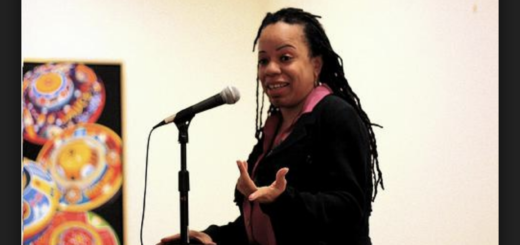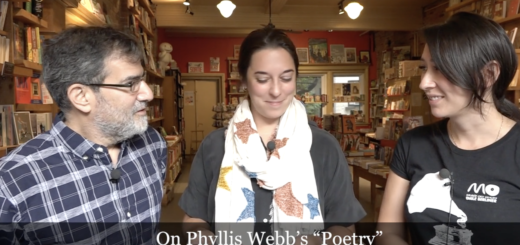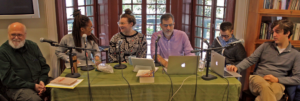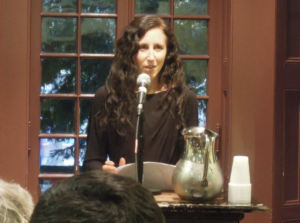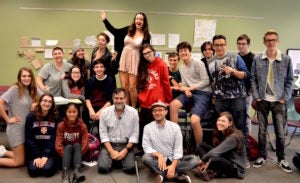Al’s update at the start of week 10 (2018)

Week 10! Yes, today we begin week 10. It’s our final week of the so-called “symposium mode” of ModPo. Each (northern hemisphere) autumn, from September to late-mid-November, we move through the ten weeks of the ModPo syllabi together. Then we host a “final words” webcast (this year, Monday, November 19, 10:30 AM Philly time) and after that we go into our long “SloPo” season (or off-season). But not really “off.” “SloPo” is a term coined by the ModPo people because it refers to an opportunity for many of us to go back and consider a single poet, a few poems, a poetry movement, etc., at a slower pace. I’ll have more to say about SloPo later in the week, but for now: please know that the ModPo site is open all year. If you rushed through some or many of the weeks, or had to stop (because life got in the way) after a few weeks, it’s okay. ModPo goes on and on. For those who finished or nearly finished or felt satisfied by doing most of the main ModPo syllabus, SloPo season might be the time for you to move through the entire ModPoPLUS syllabus. Or, if you’re a teacher (or a student, or even if you’re not affiliated with a school), you could move through the ten weeks of the TRC (Teacher Resource Center). Or you could move through the CCCR syllabus, also week by week, watching videos made by your ModPo colleagues worldwide over the year.
Lots to do in and with ModPo even after we “finish” on November 19.
In week 10 we encounter a variety of responses to the possibilities (and limitations) of conceptual art. Poets mostly took this method or mode or stance toward unoriginality or re-use or quotation or writing-through or critique-by-repetition from the world of visual art, with “conceptual art” has been an important way of aesthetic thinking and art production since at least the 1960s.
Tracie Morris takes a single sentence—a classic one-sentence “historical summary” of the Middle Passage as an origin-narrative of black lives in the Americas—and sings it, repeats it, can’t get past it, torques it, distorts it, makes it something you can’t help but hear as distortion.
Christian Bok severely, extremely limits himself to words (in each section of a book-length poem) that include a single vowel. Chapter E consists only of words with “e” as vowels. And yet somehow retells basic myth stories.
Rosmarie Waldrop rewrites the “Declaration of Independence” using N+7 words substitutions, thus defamiliarizing a text that many if not most people in the U.S. take for granted linguistically. Mike Magee, a “flarf” poet, does the same with the memorized not-thought-much-about “Pledge of Allegiance” to the U.S. flag.
Caroline Bergvall in “VIA” chants dozens of attempts (all not quite “right”) to translate a single tercet from Dante. Thus Caroline’s poem never takes us very far into hell. We’re always lost, always not quite there.
Once again, the how of the poem is as important as—arguably more important than—the what. And thus this is as good a place as any to end the ten weeks of our course: a reminder of how powerful it is when a poet focuses on the way we say something.
Here’s my 19-minute introduction to our conceptual poets: LINK.
This week we will also be offering comments on the work of those who completed assignment #4. Please go HERE to get started. Choose at least four people to review. I’ll have more to say about this tomorrow. But please start now. Your ModPo friends will be so grateful for your attention to their efforts.
—Al
More materials pertaining to Caroline Bergvall:
listen to Caroline Bergvall’s “VIA” again: LINK TO AUDIO
watch further discussion of Bergvall’s “VIA”: LINK TO VIDEO [OFFSITE COPY]
read Caroline Bergvall’s “Say Parsley” from her book Fig: LINK TO TEXT & IMAGES
watch Bergvall’s video of “Say Parsley”: LINK TO VIDEO (9 mins.)
read Marjorie Perloff on Bergvall’s “Say Parsley” (5 pages): LINK TO TEXT
watch video discussion of Bergvall’s “Say Parsley”: LINK TO VIDEO


